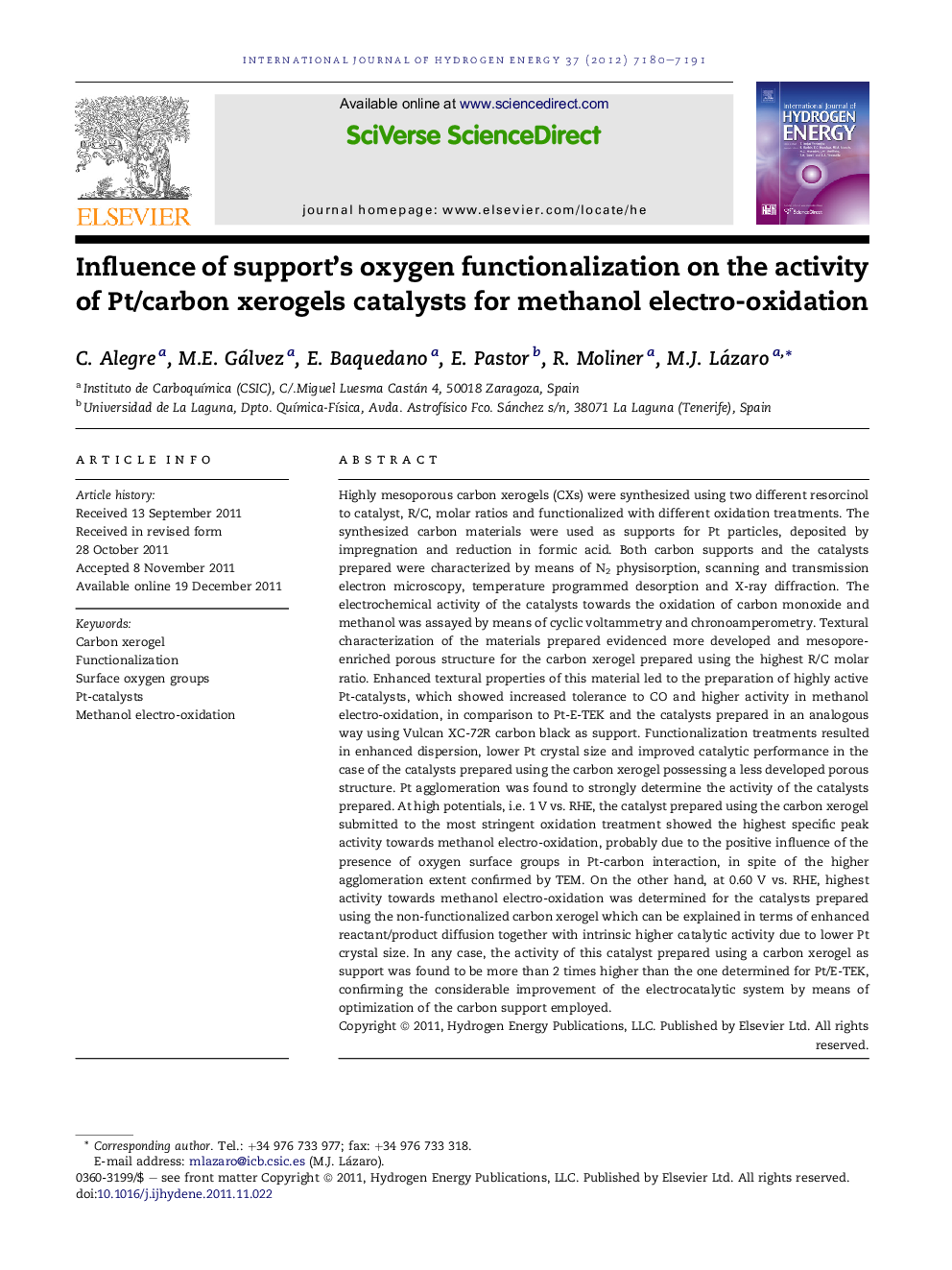| Article ID | Journal | Published Year | Pages | File Type |
|---|---|---|---|---|
| 1276664 | International Journal of Hydrogen Energy | 2012 | 12 Pages |
Highly mesoporous carbon xerogels (CXs) were synthesized using two different resorcinol to catalyst, R/C, molar ratios and functionalized with different oxidation treatments. The synthesized carbon materials were used as supports for Pt particles, deposited by impregnation and reduction in formic acid. Both carbon supports and the catalysts prepared were characterized by means of N2 physisorption, scanning and transmission electron microscopy, temperature programmed desorption and X-ray diffraction. The electrochemical activity of the catalysts towards the oxidation of carbon monoxide and methanol was assayed by means of cyclic voltammetry and chronoamperometry. Textural characterization of the materials prepared evidenced more developed and mesopore-enriched porous structure for the carbon xerogel prepared using the highest R/C molar ratio. Enhanced textural properties of this material led to the preparation of highly active Pt-catalysts, which showed increased tolerance to CO and higher activity in methanol electro-oxidation, in comparison to Pt-E-TEK and the catalysts prepared in an analogous way using Vulcan XC-72R carbon black as support. Functionalization treatments resulted in enhanced dispersion, lower Pt crystal size and improved catalytic performance in the case of the catalysts prepared using the carbon xerogel possessing a less developed porous structure. Pt agglomeration was found to strongly determine the activity of the catalysts prepared. At high potentials, i.e. 1 V vs. RHE, the catalyst prepared using the carbon xerogel submitted to the most stringent oxidation treatment showed the highest specific peak activity towards methanol electro-oxidation, probably due to the positive influence of the presence of oxygen surface groups in Pt-carbon interaction, in spite of the higher agglomeration extent confirmed by TEM. On the other hand, at 0.60 V vs. RHE, highest activity towards methanol electro-oxidation was determined for the catalysts prepared using the non-functionalized carbon xerogel which can be explained in terms of enhanced reactant/product diffusion together with intrinsic higher catalytic activity due to lower Pt crystal size. In any case, the activity of this catalyst prepared using a carbon xerogel as support was found to be more than 2 times higher than the one determined for Pt/E-TEK, confirming the considerable improvement of the electrocatalytic system by means of optimization of the carbon support employed.
► Highly porous carbon xerogels synthesized. ► Oxygen functionalization under different conditions. ► Pt-catalysts tested for CO and methanol electro-oxidation. ► Synthesis conditions determine porous structure of carbon materials. ► Functionalization improves Pt dispersion, Pt crystal size determines activity together with enhanced textural features.
